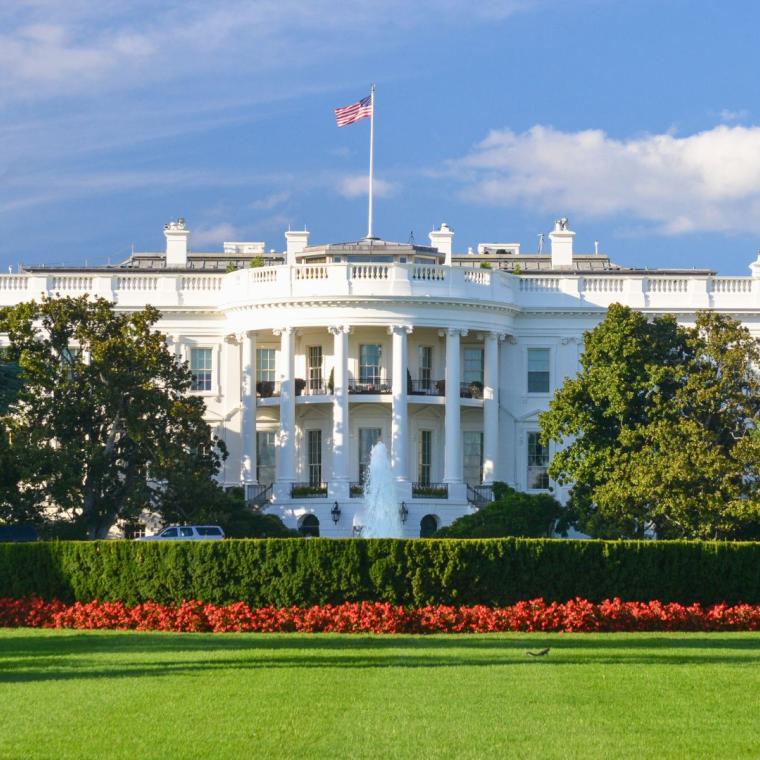
The tapestry of geopolitical risk in 2025 is more intricately woven than ever. The convergence of shifting global alliances, evolving economic policies, and rapid advances in technology has intensified the complexity and volatility facing family offices and investors. Family offices, which collectively manage assets estimated at $6 trillion worldwide according to UBS1, are at the forefront of this reality. For these sophisticated investors, successfully adapting to the new geopolitical landscape is not only about protecting wealth, but about identifying opportunities for long-term growth. In this article, we explore how family offices are confronting contemporary geopolitical challenges, drawing upon the experience of our clients and the practical strategies they are employing.
Why should family offices be concerned by geopolitics?
This question reflects a widespread and growing concern in the family office sector. Surveys such as those conducted by BlackRock reveal that geopolitical uncertainty is the leading worry for family offices, shaping their capital allocation decisions in a profound way. 84% of family offices cite the geopolitical landscape as increasingly critical paired with 64% looking to increase portfolio diversification in the current outlook2. The spectre of US sanctions has led family offices to carefully avoid investments in sensitive sectors, including those linked to strategic technologies. In the near term, however, a recalibration of portfolios and enhanced risk management approaches are essential.
Case study – A family office impacted by geopolitical issues
Consider a familiar scenario encountered by Ocorian’s teams: a highly professional family office, led by a seasoned investment expert, has implemented robust governance including a formal investment policy statement, strategic asset allocation, and detailed investment procedures. The status quo is disrupted when the ultimate beneficial owner requests a pivot towards a more strategic, long-term investment policy, with a preference for “trophy” assets and board representation. When a proposal emerges to invest in a prominent corporation, the head of the family office wisely seeks external counsel to evaluate the risks and ensure an effective mitigation plan is in place. This situation highlights the pivotal role of geopolitical factors in shaping both opportunities and threats for family office portfolios.
So, what are the key risks facing the family office?
1. Geopolitical risk
In this case, the focus is on jurisdictions where geopolitical tensions run high, though similar challenges arise globally. Ongoing disputes between major world powers present threats such as tariffs, sanctions, and restrictions on technology transfers. The risk of conflict in sensitive regions could trigger forced divestments and severe financial losses. Decoupling trends, including domestic economic prioritisation and reshoring policies in various countries, threaten the viability of long-term investments. The legal environment, including the potential for arbitrary regulatory changes, adds another layer of complexity. Family offices must also remain mindful of the implications of bilateral investment treaties, outbound investment restrictions, reputational risks, and sanctions exposure, all of which can dramatically alter the risk-return calculus of a cross-border investment.
2. Regulatory and legal environment
Frequent and opaque regulatory changes are a hallmark of many emerging markets. Arbitrary enforcement, politically motivated interventions, and ambiguous foreign investment laws create significant uncertainty. Data security and cyber regulations are tightening worldwide, and the challenge of competing with state-owned enterprises persists. Judicial independence may be limited, with local courts often favouring domestic interests, particularly in politically sensitive cases. The enforcement of contracts and intellectual property rights remains inconsistent, making international arbitration and careful structuring indispensable. Exit risks, such as restrictions on the repatriation of capital, further complicate the investment landscape.
3. Taxation
Tax considerations are equally critical. Withholding taxes on dividends and other income streams can significantly impact returns, though careful structuring and double-taxation treaties may offer relief. In some markets, capital accounts remain tightly regulated, with currency conversion and cross-border remittance subject to quotas and regulatory approvals. During periods of economic instability, outflows may be restricted, requiring careful planning and safeguarding of liquidity.
4. ESG and reputational considerations
Environmental, social, and governance (ESG) factors are increasingly influencing investment decisions. Many jurisdictions have made advances in environmental regulation, but enforcement can be inconsistent. Reputational risk is a real concern, particularly around sensitive issues like forced labour, censorship, and surveillance. Governance remains a challenge, with board independence, minority investor protections, and transparency often less robust than in more developed markets.
Risk mitigation strategies for family offices
Mitigating these multifaceted risks demands a sophisticated and proactive approach. Enhanced due diligence, including local expertise and on-the-ground verification, is essential. Structuring investments through offshore vehicles, such as Hong Kong or Singapore SPVs, can provide better control and flexibility. Governance should be strengthened through bilingual legal teams and regular board-level oversight. Building strong relationships with local regulators is important, but must be balanced with vigilance for sudden regulatory shifts.
Comprehensive risk management includes running robust stress tests, planning for worst-case scenarios, and maintaining flexibility in exit strategies. Geographic diversification, active currency hedging, and investment in resilient sectors such as defence, cybersecurity, and healthcare are all strategies gaining prominence. Digital assets are being increasingly considered by younger, risk-conscious investors as a hedge against traditional market vulnerabilities. Family offices are also turning to external partners and third-party expertise to fill gaps in internal capabilities.
Key takeaways for family offices
The risks facing family offices in today’s environment—ranging from geopolitical and regulatory to capital control, operational, and reputational—can only be managed through a multi-dimensional approach. The most successful family offices are those that overlay rigorous governance with strategic flexibility, diversification, and an openness to expert external advice.
Family offices are, above all, stewards of wealth and strategic vision. To secure their legacies and realise global opportunities, they must treat geopolitics as a central pillar of risk management and investment strategy. With more than $6 trillion in assets under administration, family offices have both the means and the responsibility to navigate these risks with agility and foresight1. By embracing robust governance, advanced risk assessment, and diversified strategies, they are ensuring the growth and resilience of their portfolios amid a turbulent and unpredictable world. For more information on how Ocorian can support family offices globally, reach out to the team.


